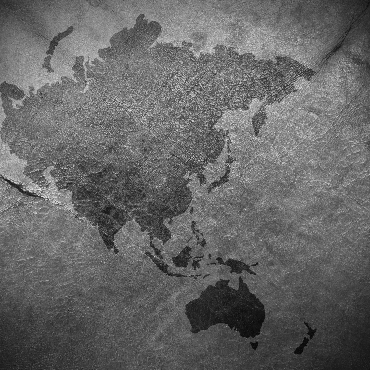SINGAPORE'S CONTINGENCY PLANS FOR POSSIBLE HONG KONG-STYLE PROTESTS
With the exception of Taiwan, few Indo-Pacific nations have vocally supported the Hong Kong protests. Military officials in Thailand have condemned opposition politicians for meeting with Hong Kong student leaders in the past, and neighboring autocratic governments have begun crafting contingency plans to get ahead of any home-grown protests. Singapore, a parliamentary democracy governed by the People's Action Party since 1965, may be Southeast Asia's emblem of law and order, but elites there are viewing developments in Hong Kong with trepidation. Officials in the city-state have publicly announced in advance of impending 2020 elections that "police have plans in place to deal with illegal assemblies." The government is also taking preemptive measures, including pressuring Yale-NUS College, a joint venture between Yale University and the National University of Singapore, to cancel a course titled "Dissent and Resistance in Singapore." The reasons for Singapore's nervousness are clear; next year's elections will likely be the first prime ministerial succession since 2004, and local authorities are worried that the attendant political uncertainty could prompt unforeseen turmoil. (Financial Times, November 2, 2019)
ISIS RECRUITERS PREY ON VULNERABLE EXPATS IN SOUTHEAST ASIA
Indonesia, the world's most populous Muslim nation, is the locus of Islamic radicalization in Southeast Asia. In the wake of the collapse of the ISIS caliphate, the Indonesian government is closely monitoring returning ISIS fighters from Iraq and Syria, as well as new recruitment methods being employed by local radicals. According to the Institute for Policy Analysis of Conflict, an Indonesian think tank, ISIS recruiters have focused primarily on the 635,000 female Indonesian migrant workers in Hong Kong and Singapore. Severed local ties make expats prime targets of radical indoctrination, as evidenced in the government of Singapore's recent arrests of three Indonesian nationals on grounds of terrorist financing. Law enforcement authorities in Singapore claim that two of these three women intended to travel to Syria. (CNN, November 9, 2019)
WASHINGTON'S LATEST PROPOSAL: GRADE THE "BELT AND ROAD"
In Washington's latest response to China's "One Belt, One Road" (OBOR) initiative, Secretary of Commerce Wilbur Ross announced a new joint project with Japan and Australia on the sidelines of the recent Association of Southeast Asian Nations summit in Thailand. The trilateral "Blue Dot Network" (BDN) does not explicitly reference China, but its dual role as a credit rating agency and a development institution are nonetheless meant to grade PRC infrastructure and investment loans and raise capital for counter-OBOR projects. The American implementing agency is the Overseas Private Investment Fund, which will soon morph into the Development Finance Corporation and get a $30 billion cash injection under the auspices of the BUILD Act. (ABC News, November 5, 2019)
[EDITOR'S NOTE: Coaching governments on loan due diligence reviews has become a proven tactic to counter one-off OBOR projects. Rating Chinese loans, however, risks drawing Washington further into a perpetual reactive mode vis-à-vis the Chinese Communist Party. The U.S. still lacks a strategic response to OBOR as a concept.]
KIM JONG-UN GAINS THE UPPER HAND IN NEGOTIATIONS WITH WASHINGTON
President Trump's approach to North Korea is coming under renewed pressure from Pyongyang. North Korean dictator Kim Jong-un issued a stern warning this week in response to upcoming U.S.-South Korean military exercises. The official statement from North Korea's State Affairs Commission cited "a feeling of betrayal" and claimed that President Trump had failed to offer reciprocal measures to North Korean "confidence building measures," most likely referring to long-range missile and nuclear testing. The statement also referenced an end-of-year deadline that Kim announced in April that uncoincidentally coincides with the onramp of presidential election season in the United States. Trump regularly references the North Korean testing moratorium as a signature foreign policy achievement and has already begun campaigning on bringing peace to the Korean Peninsula. Kim can invalidate this talking point with one test and as a result holds significant leverage over the president's foreign policy messaging. (Reuters, November 13, 2019)
TAIWAN SOUNDS THE INVASION ALARM
The relationship between declining economic growth and aggressive foreign policies is well-established in international relations theory, particularly as it relates to China-Taiwan relations, but government officials rarely discuss it openly. Earlier this month, however, Taiwan's Foreign Minister, Joseph Wu, bucked this norm and publicly flagged Beijing's slowing economic growth, which is set to hit a 30-year low this year, as a factor that could accelerate plans by the PRC to forcibly "reunify" Taiwan. Beijing responded by accusing Wu of politicizing cross-strait tensions during Taiwan's presidential election season, but conveniently ignored Xi Jinping's commitment in 2012 to have the People's Liberation Army (PLA) prepared for a Taiwanese offensive by 2020. Only months away from Xi's own deadline, Wu is identifying structural trends that could accentuate regional instability. (Reuters, November 7, 2019)
